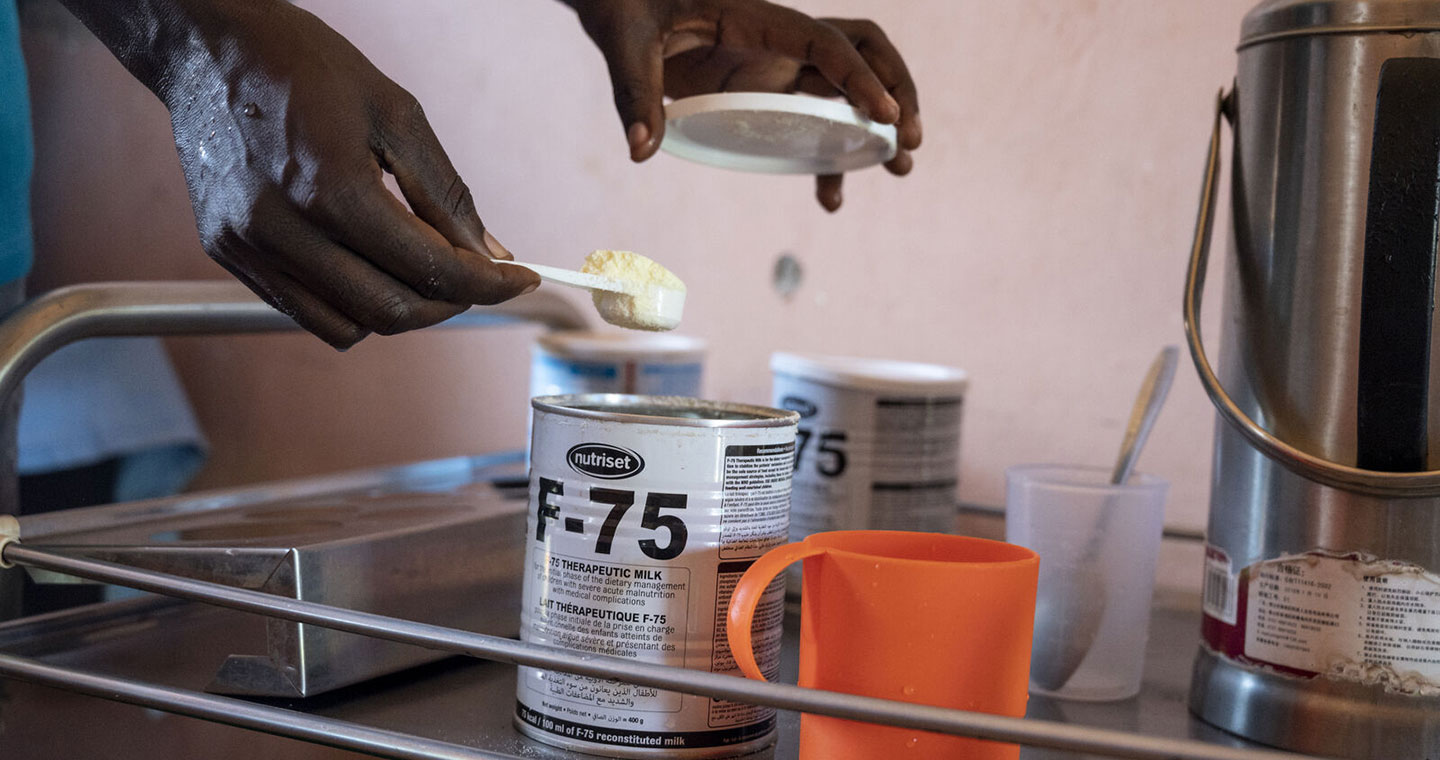

Where

Funded By

When
Provide nutritional support to address all forms of acute malnutrition among young children, pregnant and breastfeeding women, people living with HIV—and their caregivers—or TB-affected, food-insecure households, and caregivers of patients in therapeutic nutrition programs. This work is complemented by helping every child and mother at risk of malnutrition thrive by providing quality nutrition and equipping families with the knowledge and resources to feed their children with care.
South Sudan is one of the most food-insecure countries in the world. Among pregnant and lactating (breastfeeding) women and children under 5, levels of malnutrition are alarmingly high, resulting in preventable illnesses and deaths. Malnutrition in South Sudan has many causes: disrupted local economies, climate change—especially flooding, conflict, and insecurity. Too many mothers in South Sudan have endured the heartbreak of watching their children suffer from untreated malnutrition. With the help of CMMB South Sudan in partnership with WFP, UNICEF and the State Ministry of Health, more people in need are provided with nutritional support.
Since 2016 we have worked with vulnerable communities in 10 counties of Western Equatoria State. We conducted nutrition screening with the help of community nutrition volunteers/Boma Health workers, carried out biannual Vitamin A supplementation, deworming campaigns medication, and for medical interventions to support children and women experiencing severe acute malnutrition (SAM). With a focus on the 1st 1,000 days of a child’s life (a critical window of opportunity to address all forms of malnutrition), we supported primary caregivers of children 0-23 months to help them manage their families’ long-term nutritional needs. Women learned how to develop nutritionally balanced gardens and cook diverse, nutritious meals for their children.
We connected adults and children diagnosed with malnutrition to care and provided nutrition supplies like ready-to-use therapeutic food. We also dispelled myths about breastfeeding—and connected mothers to support groups so they have encouragement as they provide this critical source of nutrition to their newborns. Through this project, we also reached people living with HIV and TB—and their families—helping them prioritize good nutrition and gain the strength and support they need to stay on treatment and lead healthier lives.
Our approach has helped communities become more resilient. With tools, seeds, and agricultural advice, families can grow their own food and gain an income source from selling what they don’t need. To build long-term food security, we have encouraged households to start their own businesses with financial support from voluntary savings and lending associations.